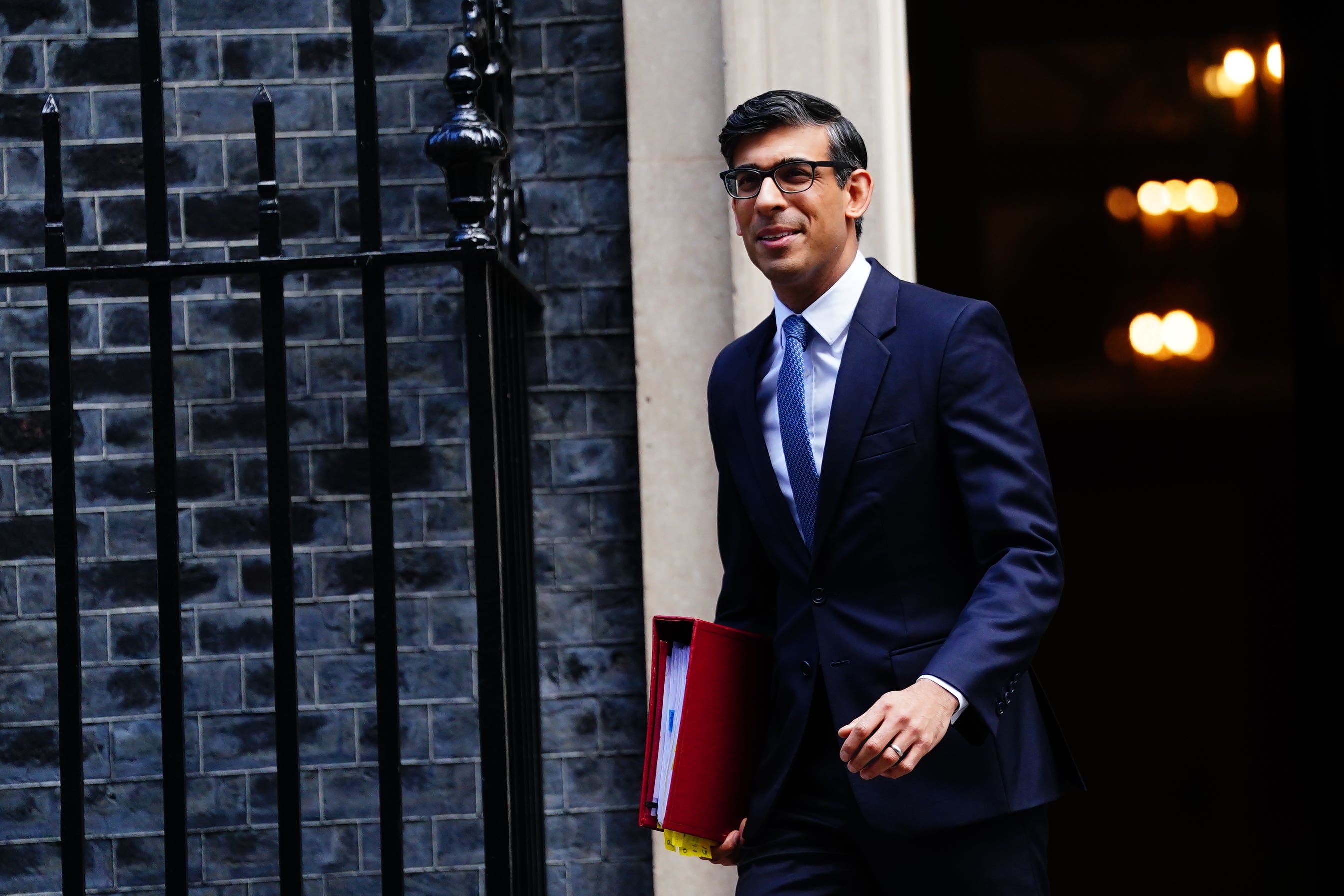Sunak hails Britain joining Indo-Pacific trade bloc
The Prime Minister said the UK is exploiting ‘post-Brexit freedoms’ to drive economic growth.

Your support helps us to tell the story
From reproductive rights to climate change to Big Tech, The Independent is on the ground when the story is developing. Whether it's investigating the financials of Elon Musk's pro-Trump PAC or producing our latest documentary, 'The A Word', which shines a light on the American women fighting for reproductive rights, we know how important it is to parse out the facts from the messaging.
At such a critical moment in US history, we need reporters on the ground. Your donation allows us to keep sending journalists to speak to both sides of the story.
The Independent is trusted by Americans across the entire political spectrum. And unlike many other quality news outlets, we choose not to lock Americans out of our reporting and analysis with paywalls. We believe quality journalism should be available to everyone, paid for by those who can afford it.
Your support makes all the difference.Rishi Sunak has hailed the UK’s acceptance as a member of a major Indo-Pacific trade bloc, saying it puts Britain in a “prime position” in the global economy.
The UK accession to the Comprehensive and Progressive Agreement for Trans-Pacific Partnership (CPTPP) was formally confirmed in a telephone call between Trade Secretary Kemi Badenoch and counterparts from the group.
It represents Britain’s biggest trade deal since leaving the EU, cutting tariffs for UK exporters to a group of nations which – with Britain’s accession – will have a total gross domestic product (GDP) of £11 trillion, accounting for 15% of global GDP, according to UK officials.
The Prime Minister said it demonstrated how the UK is able to take advantage of its “post-Brexit freedoms” to strike agreements that were impossible when it was in the EU which will drive economic growth across the country.
The UK is now in a prime position in the global economy to seize opportunities for new jobs, growth and innovation
However critics have said the impact will be limited, with official estimates suggesting it will add just £1.8 billion a year to the economy after 10 years, representing less than 1% of UK GDP.
Labour said it was essential to ensure that UK safeguards on consumer safety, food safety, data protection and environmental protections were not compromised as a result of the agreement.
Britain is the first new member, and first European nation, to join the bloc – comprising Australia, Brunei, Canada, Chile, Japan, Malaysia, Mexico, New Zealand, Peru, Singapore and Vietnam – since its formation in 2018.
It follows nearly two years of negotiations, culminating in intensive talks in Vietnam earlier this month, when representatives of all 11 existing members agreed to the UK joining.
While Britain already has trade agreements with most of the CPTPP members, apart from Malaysia, officials said it would deepen existing arrangements, with 99% of UK goods exported to the bloc now eligible for zero tariffs.
Key UK exports to the region, including cheese, cars, chocolate, machinery, gin and whisky, will be among those to benefit, while officials said the services industry would also enjoy reduced red tape and increased market access.
At the same time, they said vital UK sectors, including agriculture and the NHS, will be protected, while existing animal welfare and food safety standards will be maintained.
CPTPP countries and business need to work together to future proof the rules-based trading system and stimulate growth with a focus on digital, services and resilient supply chains
It represents a continuation of the post-Brexit policy “tilt” towards the Indo-Pacific region first initiated by Boris Johnson.
Mr Sunak said it would put the UK at the centre of a “dynamic” group of Pacific economies, giving British businesses “unparalleled access to markets from Europe to the south Pacific”.
“We are at our heart an open and free-trading nation, and this deal demonstrates the real economic benefits of our post-Brexit freedoms,” he said.
“As part of CPTPP, the UK is now in a prime position in the global economy to seize opportunities for new jobs, growth and innovation.”
The CBI welcomed the agreement as a “milestone” for British industry, reinforcing the UK’s commitment “to building partnerships in an increasingly fragmented world”.
Interim director-general Matthew Fell said: “CPTPP countries and business need to work together to future proof the rules-based trading system and stimulate growth with a focus on digital, services and resilient supply chains.”
Labour said that while the agreement represented “encouraging” progress, it needed to see the details.
The Conservative Government’s track record in striking good trade deals is desperately poor
Shadow trade secretary Nick Thomas-Symonds said: “The Conservative Government’s track record in striking good trade deals is desperately poor.
“Other countries joining CPTPP arrangements have secured important safeguards and put in place support for their producers: it is vital that ministers set out if they plan to do the same.”
Liberal Democrat trade spokeswoman Sarah Green said: “This Conservative Government is responsible for some shocking trade deals that fail to add economic benefit to the UK.
“The Conservatives have trashed the British economy with GDP stagnant and this announcement will not even repair a fraction of their damage.”